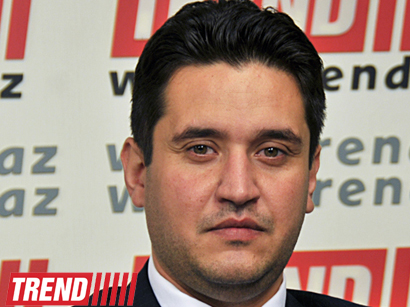Baku, Azerbaijan, Oct. 14
Trend:
A sanction war between Russia and the West has long went beyond these players and touched their partners, which have no direct relation to the conflict in Ukraine.
These countries are often forced to reconsider their own models of traditional economic projects and think about new logistics schemes.
Kazakhstan is considering the oil export options through China and Iran in case of further sanctions against Russia, the Kazakh National Economy Ministry told News-Kazakhstan agency.
The oil transportation options through the sea port of Aktau to Baku and farther - through Azerbaijan to the world markets are being considered, the ministry said.
The possible oil supplies through Iran are not anything new for the Caspian region. In a certain sense, this route has already been tested and it worked. The supplies are made as part of the SWAP-operations. Thus, Iran gets the Central Asian oil in its Caspian ports and supplies the obtained volumes in the Persian Gulf.
The idea is interesting, but there are two issues. First, the oil is supplied to the traditional market full of offers in the Persian Gulf. Second, Kazakhstan is concerned about the problematic relations between Tehran and the West.
As for China, the developing market of this country is ready to absorb any volumes that Kazakhstan may supply. However, Astana will be bound with the only market and this does not correspond to the interests of diversification. At the same time, both Russia and the West have never intended to push Astana towards Beijing.
Europe is still the most interesting and attractive market for Kazakhstan. Along with the oil sale through tenders on these markets, it is necessary to consider such an important component as Kazakhstan's refining assets in Europe.
At present, Kazakhstan's oil is supplied through Azerbaijan, in particular through the Baku-Tbilisi-Ceyhan oil pipeline, to the Mediterranean coast.
There are also opportunities to deliver oil from Kazakhstan to the Black Sea region via a railway through Azerbaijan. So, the relevance of the Trans-Caspian direction again increases for the producers in the east coast of the Caspian Sea.
Russia, Kazakhstan and Belarus today are being actively integrated and develop their economic cooperation within the Eurasian Economic Union. However, the sanctions imposed on Russia directly affect the whole economic space within the union. While Belarus doesn't get used to the sanctions of the West, Kazakhstan has already started to look for a way out of the presumed situation.
At the same time, the sanctions may directly or indirectly target the new economic union which includes a large territory, rich with hydrocarbons and natural resources, as well as population of 170 million.
The dependence of economy on the energy sector is characteristic for all post-Soviet countries which have large hydrocarbon reserves. And this fact makes it important for these countries to protect their interests in this sphere and create a diversified supply system against the background of the presumed dramatic fall in world oil prices as a result of the war of sanctions.
Meanwhile, regardless the supply volume, it is necessary to ensure the operation of all routes. The bright example for this is Azerbaijan which has three oil and four gas export pipelines. And despite the existence of economically and geographically effective oil export route as Baku-Tbilisi-Ceyhan, the routes for exporting oil to the Black sea region via pipelines through Georgia and Russia also continue their operation.
The current situation in Ukraine reemphasizes the importance of diversifying the energy supply routes, which allow the countries to maintain their energy security at a high level and pursue independent energy policy under the conditions of constantly changing political situation.
Seymur Aliyev is Head of Trend Agency's Russian News Service
Kazakhstan: the choice of pipes
A sanction war between Russia and the West has long went beyond these players and touched their partners, which have no direct relation to the conflict in Ukraine.






